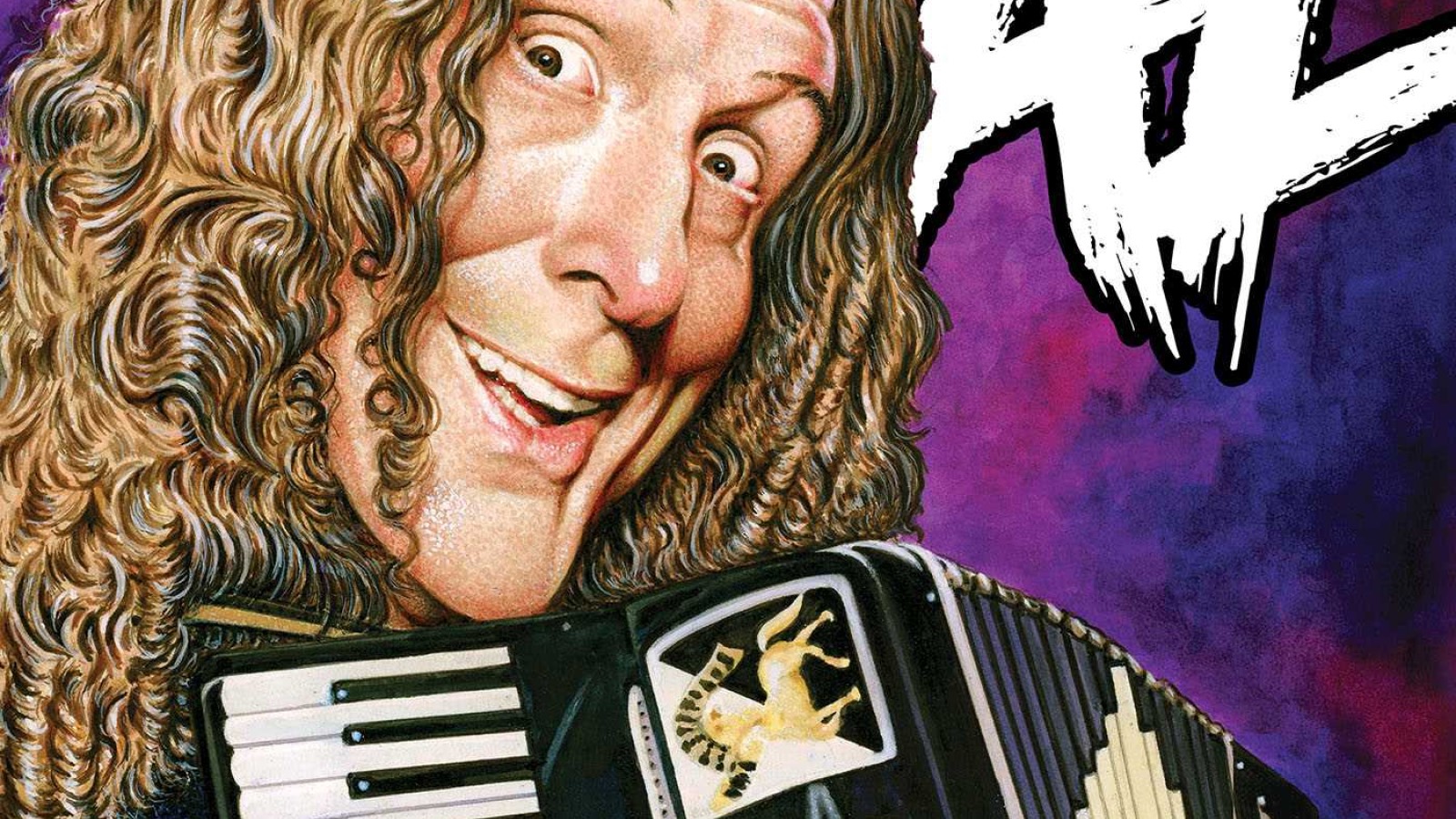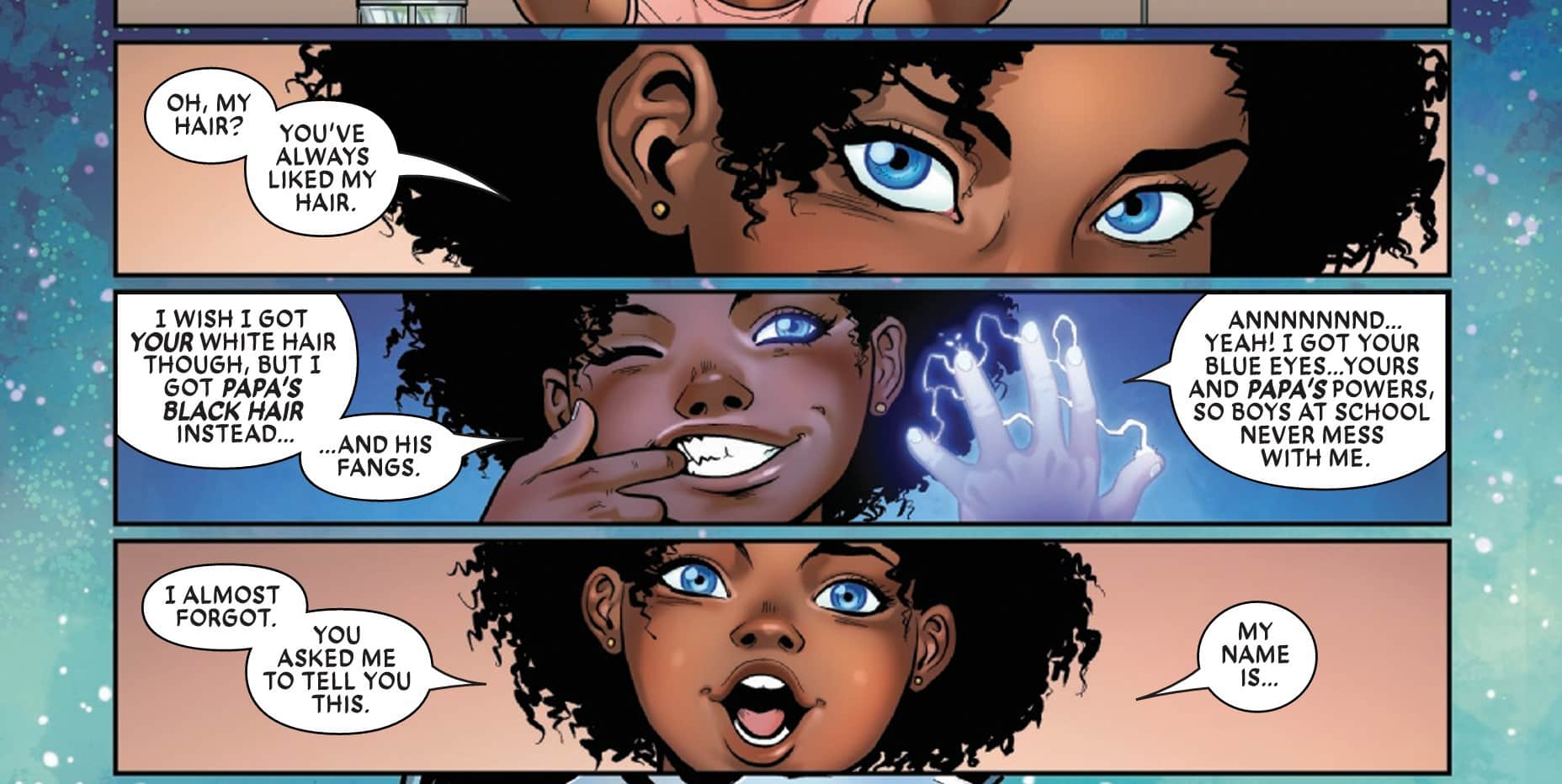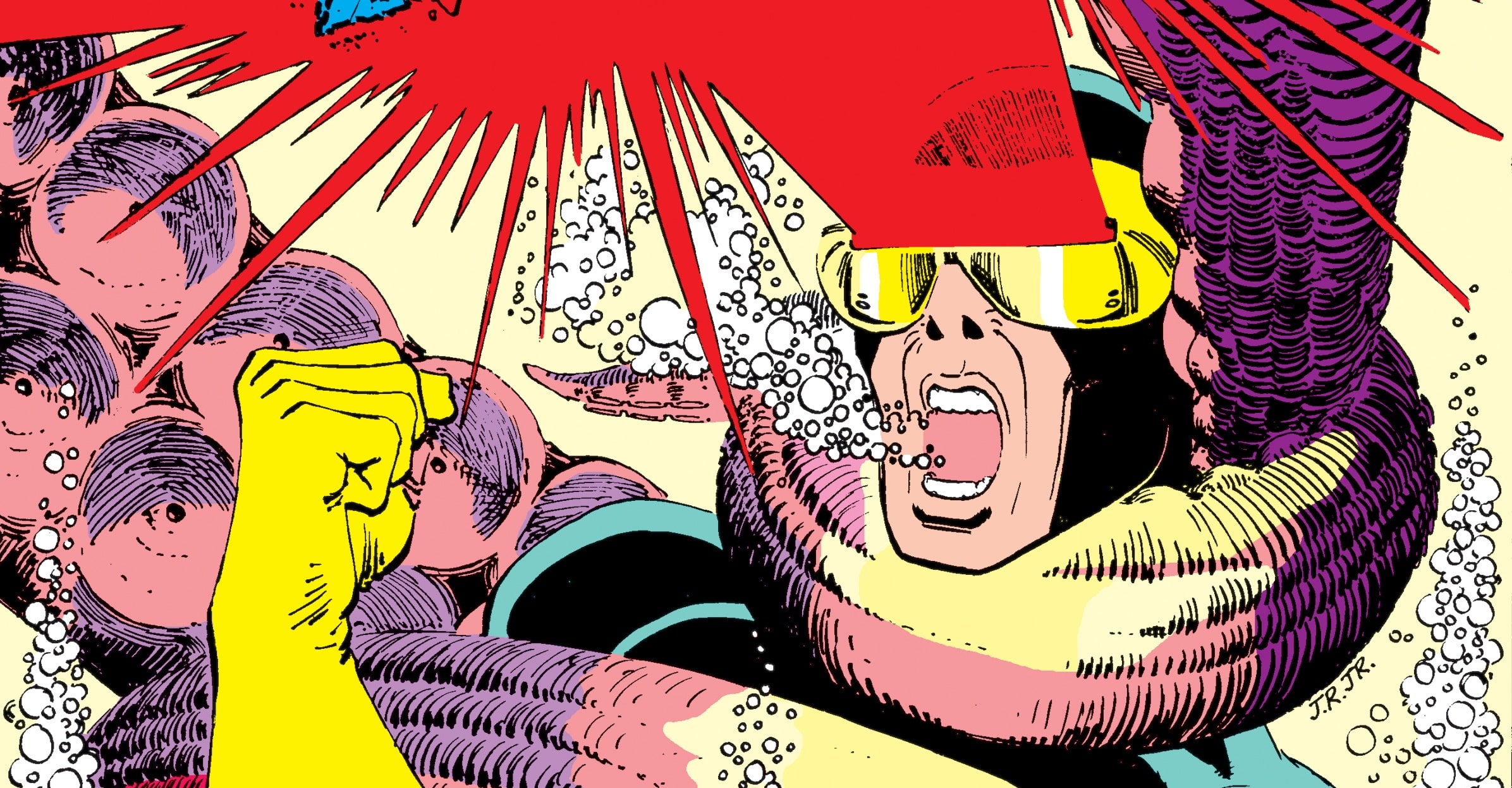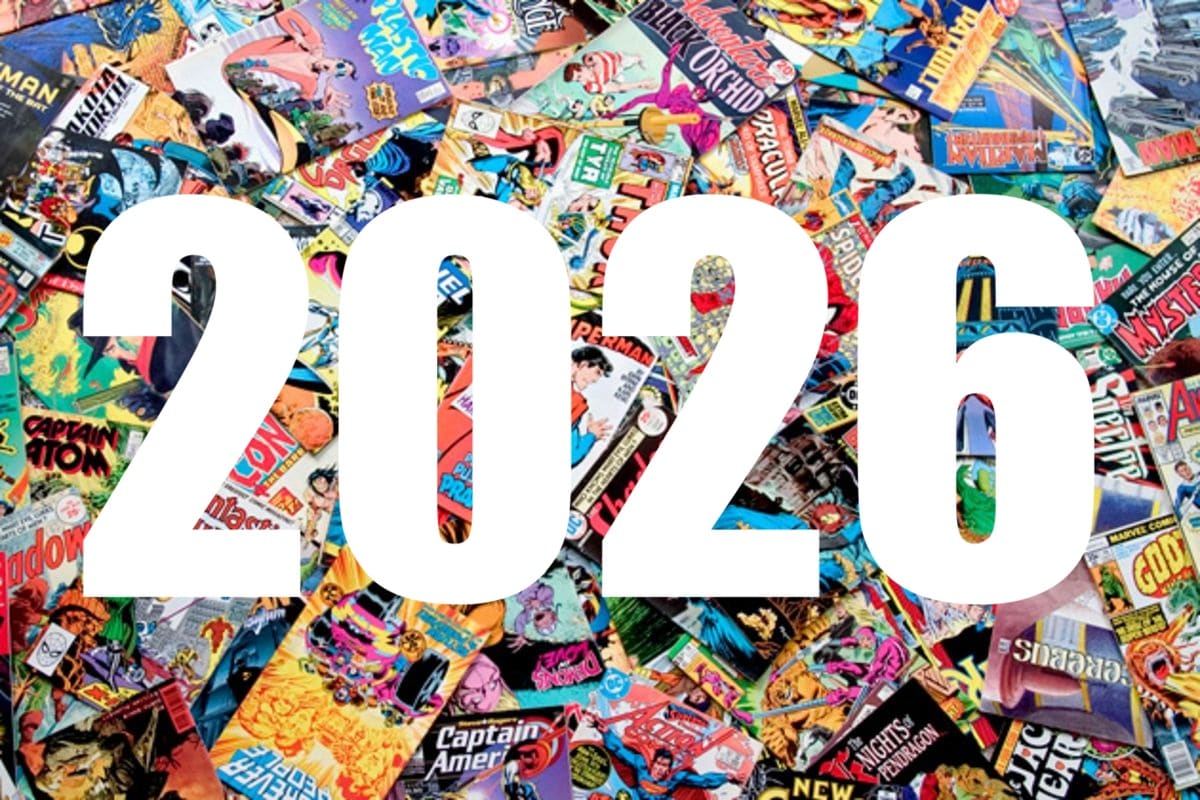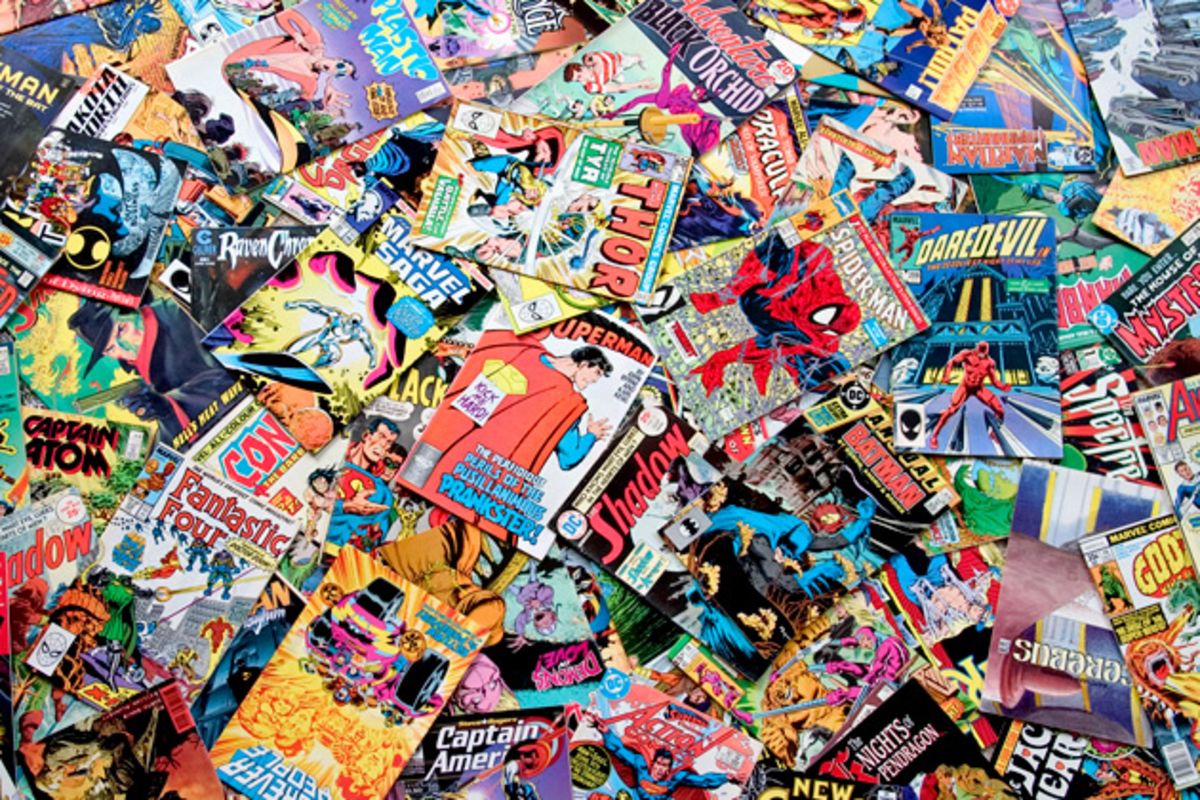It is 1986 or ’87. I am 6 or 7 years old. Dad and I are having a catch in the backyard of our home in Union, New Jersey. I played rec league tee-ball for two years. Like the other sports my parents signed me up for — soccer, wrestling, basketball, golf — I was bad at it, but I at least stuck with this one for more than one season, and I had the participation trophies to show for it, so suck on that, parents who hate participation trophies. And those suckers looked good. I dusted them every Saturday while I watched cartoons.
Catch was always a frustrating experience. It was tedious. My mind wandered constantly. Which means I wasn’t following the ball until it was too late. I wouldn’t chase after it. If I could throw my hand out, Daria-style, without moving, I would. I’d flinch if the ball were too close to my face. Dad would get increasingly frustrated. The experience would often end with him yelling and storming into the house. That was fine, it was almost dinner time.
My dad was a jock. Baseball, basketball in his youth. PBA league bowling on Friday nights during his years as a police detective. An obsession with golf that lasts to this day. I wouldn’t become a comics fan until adolescence, but it was obvious from early on that I had only compulsory interest in the sporting life. Saturday mornings were for cartoons, Lego castles and organizing my GI Joes. Sure, I had baseball cards, but ask me questions about Dwight “Doc” Gooden now.
There’s no hero or villain in this story. Call it generational differences. Call it my dad trying his best to get me into things he believed were important. Call me a little ADD brat for not trying harder. There’s certainly no version of this story where I am blameless. I remember one time he tried to get me to watch The Karate Kid because maybe the story of sports and the funny “wax on, wax off” bits would get me interested in it. It was a valiant effort. I still haven’t watched that movie the whole way through. Does the Karate Kid win?
***
Z2 Comics’ The Illustrated Al: The Songs of “Weird Al” Yankovic is an interesting beast. Over 208 pages, it gives dozens of illustrators, artists and cartoonists the opportunity to interpret Yankovic’s music, specifically those songs for which he never made videos. There are some classics — “Dare to Be Stupid,” “The Night Santa Went Crazy” and “Albuquerque” are all represented — but because so many of Yankovic’s biggest hits received music videos, or later internet cartoons, the mix leans heavily toward his non-parody originals, songs about unhealthy relationships; longer numbers that tell meandering, increasingly ridiculous stories; and mid-career, mid-album tracks that just never stuck in the brain. The more-famous rest get one-page pinups, so you can still see artists’ takes on Yankovic in, say, the “Eat It” jacket or the “Fat” suit.
(The best of these is Super Graphic illustrator Tim Leong’s take on “Like a Surgeon,” which presents as a patient chart compiling data about the song, such as the number of times Yankovic says the words “Hey” and “Patient” and “Surgeon,” and its rise and fall on the Billboard Hot 100 chart. You can call it a Hickman data page if you like, but Leong was doing these first.)
***
It’s a Monday afternoon in 2022. I am 42 years old. My son, Logan, is 11. On Mondays, I take Logan to karate practice. He’s a first-degree brown belt, the last step before black. We signed him up in kindergarten, and aside from virtual lessons during the height of the pandemic, he’s been going two or three times a week ever since.
He’s focused. If other kids are goofing around, he’s not. He puts in the work, but he still needs to learn how to do a proper pushup. He’s intense, but in sparring he still needs to work on his aggression. I say all this knowing I’m not trained to do any of it (except the pushups). The point is, whereas I bounced from sport to sport in a never-ending quit train in my youth, Logan actually stuck with something and shows no signs of wanting to give it up. I am insanely proud of him.
When I was a younger adult, I assumed, based on no scientific data whatsoever, that my son was going to grow up to be a jock, as karmic retribution for my relationship with my father. So far, that has not happened. All karate aside, my son loves video games and Pokemon and Lego. We’ve been reading the early issues of Amazing Spider-Man together, starting from the very first Stan Lee and Steve Ditko stories. He’s more like me than I’d ever dared hope for, with the best parts of my wife mixed in.
And recently, he’s picked up a new obsession.
***
Much like an actual Yankovic concert, “Dare to Be Stupid” is a good way to open The Illustrated Al, as it’s a familiar song most fans know, made more popular by its inclusion in 1986’s Transformers: The Movie. The team of Hilary Barta, Jim Wiz, Wes Wong and Rick Parker doesn’t have to do much more than take the song literally, showing distorted Americans putting down the chainsaw, letting the bedbugs bite and putting all their eggs in one basket. The 1980s song gets a visual 2022 update as the “story” ends with a bunch of people jumping lemming-like off a cliff, two of whom wear shirts that say “incel” and “Q.”
It’s exciting to see recognizable cartoonists like Peter Bagge and Bill Plympton interpreting Yankovic songs. It’s less exciting to see their takes on “Why Does This Always Happen to Me” and “One More Minute,” songs I’m less attached to (even if the former does include piano accompaniment by Ben Folds). Mike and Laura Allred, whose mod pop art practically screams “Let us draw a Weird Al story,” are wasted on a pinup in the back. The best pairing of familiar artist and familiar song may be Fred Harper, who tackles 1996’s “The Night Santa Went Crazy.” Harper, who’s done a ton of work for AHOY Comics that makes him perfectly suited to this job, goes full gore on this assignment, showing vivisected reindeer, piles of chopped up elves and a larger-than-life Santa drunk on rage, violence and … well, alcohol.
But the piece that goes the hardest may be Chris Visions’ take on “Trigger Happy,” a Beach Boys riff from 1992 that was ahead of its time in its lampooning of the lionization of gun culture in America. Over a series of brightly colored double-page spreads, Visions graffitis the walls with images of action movie stars and different iterations of Al from across his career, interspersed with images of Hitler Youth-esque children with firearms, a shirtless man with an assault weapon and Kurt Cobain putting a gun to his mouth. The short ends with a child writing the closing refrain, “Better watch out punk, or I’m gonna have to blow you away,” over and over on a chalkboard, eerily reminiscent of the video for Pearl Jam’s “Jeremy.”
Then there are the songs that are completely dated, like “Mr. Popeil.” Ron Popeil, the infomercial king, died last year, and despite his decades of TV ubiquity, I highly doubt in the age of streaming anyone’s seen an infomercial in the past decade, let alone familiarized themselves with his many inventions.
***
Weird: The Al Yankovic Story was released on Nov. 4, 2022, on the Roku Channel. We watched it together at home as a family. It’s a good movie, well cast with some amazing cameos (By God, the pool scene!). Easily one of my top five films of last year, but that’s not what we’re here to talk about.
Now, Logan had heard Weird Al before, but since then, he’s been listening to Al nearly exclusively. When he walks in the door after school, he’ll have his headphones on, mumble-singing along to “Virus Alert,” “Yoda,” “The Alternative Polka,” “Like a Surgeon” or “Ode to a Superhero.”
But it didn’t stop there. He had to know more. He stumbled across the Weird Al episode of VH-1’s Behind the Music on YouTube. I watched UHF with him not too long ago. Last month he dedicated an entire day to absentmindedly singing “Christmas at Ground Zero” in Yankovic’s high, nasally voice.
It’s been driving my wife nuts. Meanwhile, I feel as if I’ve ascended to some sort of Nerd Dad zen state.
***
My first Weird Al album was 1992’s “Off the Deep End,” best known for “Smells Like Nirvana,” a “Smells Like Teen Spirit” parody. My Aunt Linda got it for me on cassette for my birthday. It likely was purchased for me semisarcastically, like, “Madelyn’s kid is a fucking nerd, he’ll like this.” Well, the joke’s on you, Aunt Linda, because I loved it.
At the time, I don’t think I was even that aware of Nirvana (pop-focused Z100 was my New York radio station of choice), but I definitely knew the bases for the MC Hammer parody “I Can’t Watch This,” the New Kids on the Block parody “The White Stuff,” the Gerardo parody “Taco Grande” and the many songs mashed together to form the medley “Polka Your Eyes Out” (none of which were illustrated for this book).
Comedy was my thing as a kid. Sitcoms, stand-up, sketch shows, I devoured a lot of it. Weird Al was just another piece of that. I got into Al during a prolific period for the artist in the early to mid-1990s. After Off the Deep End came Alapalooza in 1993, followed by Greatest Hits Volume II in 1994, followed by Bad Hair Day and the theme from Spy Hard in 1996. While my musical tastes evolved over the decade, from pop to hip-hop to grunge to ska and beyond, Al remained a constant, his own songs evolving right alongside those same musical trends.
Part of what’s missing from the book is that historical-document element, the feeling that you’re tracing the arc of pop music along with Al. It’s hard to do that when the songs that did it best are left out, the songs that are included are presented out of order and some of those songs are the most forgettable. It also surprisingly limits the types of musical genres represented in the book. When you settle on a theme that forces you to leave out “White & Nerdy,” “Amish Paradise” and “All About the Pentiums,” suddenly there are no hip-hop songs to illustrate. No country songs, either. And yet there are two doo-wop numbers (“One More Minute” and “Since You’ve Been Gone” are both present and accounted for).
***
Of all the songs illustrated in the book, the storytelling numbers — “Biggest Ball of Twine in Minnesota,” “Albuquerque” and “Jackson Park Express” — lend themselves the best to its premise, though it boosts those strips to mix them with others that tend to be assemblages of random images.
“Albuquerque,” long considered one of Al’s best originals and a fan favorite at his live shows, especially screams to be illustrated, but there’s a bit of a monkey’s paw effect with that. On one hand, it’s great to see artist Ryan Dunlavey telling the long-and-winding tale that first appeared on 1999’s Running with Scissors, from the force-feeding of a child Yankovic sauerkraut to an adult Al serving time in prison for the heinous crimes he commits toward the end of the song. On the other, I can’t help but feel like a) with a song like “Alburquerque,” the best visual representation of its events still exists in the listener’s mind, and b) while one of Al’s best, it also includes one of those lyrical moments that hasn’t aged well, the inclusion of a dated term for intersex people. Dunlavey draws them as a vertically split male-presenting person on one side and female presenting on the other — think “the Duali-DEAN of man.” I don’t know what the “better” version of that is — the lyrics are the lyrics — but it’s a sharp note in an otherwise brilliant piece of music.
Of the three above mentioned songs, the best drawn may be Felipe Sobreiro’s take on 2014’s “Jackson Park Express.” Sobreiro tells the story of a man obsessing over a woman on the bus by splitting his styles, so half is presented as a 1950s romance comic, complete with bright Ben-Day dot coloring, and half is meant to depict the reality of a sad creep on public transit, colored in muted, sickly grays. Toward the end of the song, the two worlds briefly merge as the bus creep imagines himself having children with the woman. Beside their two idealized romance-comic selves spring two children who look more like the man on the bus than the fantasy parents they belong to. But none of this was ever meant to be. It would be a sad tale, if it wasn’t all taking place in the mind’s eye of a man you’ve definitely seen spreading himself out on the train home from work.
***
As my son rapidly approaches adolescence, my irrational mind wonders if there’s not still time for the prophecy of my younger self to come true. Not that I see him strapping on a helmet and joining the football team tomorrow, but that his personality will change, his interests along with it, and we’ll grow apart as many fathers and sons do. It’s a bummer to dwell on.
But it drives home the point that this current phase — this Weird Al phase — is a gift. An artist who left an impression on me growing up, I now get to watch my son experience through fresh eyes, for however long it lasts. Maybe, if I’m lucky, I’ll get to take him to a concert before this all passes. Maybe, for my generation and for his, that’s the real catch with Dad.
Dan Grote is the editor and publisher of ComicsXF, having won the site by ritual combat. By day, he’s a newspaper editor, and by night, he’s … also an editor. He co-hosts The ComicsXF Interview Podcast with Matt Lazorwitz. He lives in New Jersey with his wife, two kids and two miniature dachshunds, and his third, fictional son, Peter Paul Winston Wisdom. Follow him @danielpgrote.bsky.social.

